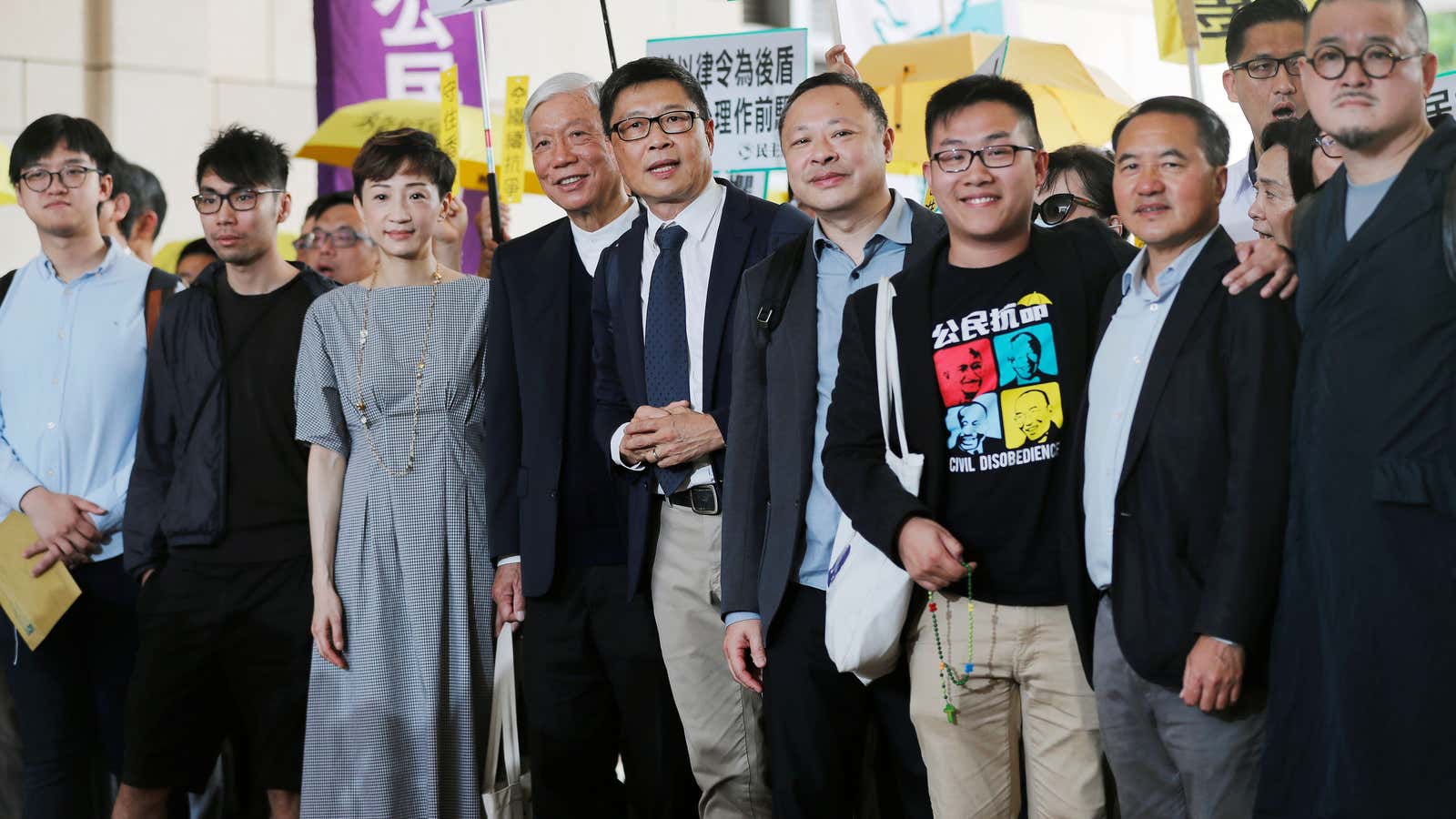The most politically fraught trial in recent years in Hong Kong ended today (April 9) with all nine defendants found guilty of various charges of causing public nuisance, or inciting others to do so.
The nine took part in the mass pro-democracy protests held in 2014, dubbed the Umbrella Movement, asking for greater political rights in Hong Kong. The mostly peaceful protests lasted 79 days, occupying a few main roads, and gaining the “Umbrella” moniker after demonstrators used theirs to protect themselves from pepper spray and tear gas.
The defendants included the Occupy Trio—two academics and a reverend who laid the foundation for the 2014 protests with their call for mass civil disobedience. All three of them, legal scholar Benny Tai, sociology professor Chan Kin-man, and reverend Chu Yiu-ming, were found guilty of conspiracy to commit public nuisance. Tai and Chan were also found guilty of inciting others to cause public nuisance.
Lawmakers Tanya Chan and Shiu Ka-chun, together with two student leaders, Tommy Cheung and Eason Chung, and activist Raphael Wong were each found guilty of two charges as well—inciting others to cause public nuisance and the archaic charge of inciting people to incite others to cause public nuisance, a colonial-era offence.
Democratic Party veteran Lee Wing-tat was found guilty of inciting others to cause public nuisance.
Each charge carries up to seven years in prison. At a hearing this afternoon, the defendants will be able to make a plea for circumstances to be taken into account in their sentencing. It’s unclear if they will be sentenced immediately.
The defendants had pleaded not guilty, and told the court that the protests were a form of peaceful civil disobedience to obtain the political rights that had been promised to Hong Kong at the time of its handover from the UK to China in 1997. They said the crowds joined voluntarily, particularly after police fired tear gas.
Today’s verdict in a Kowloon courtroom was attended by crowds of of supporters, many of whom carried a yellow umbrella, a symbol of the protests, and who gave a standing ovation to the nine.
Benny Tai, arriving in court, said that the struggle for democracy in Hong Kong would continue:
The political suppression that resulted from those protests has lasted until today. For example, political parties which emerged from the demonstrations have either been declared illegal, or banned from running for elections, both at the district and legislative level. Many of the movement’s leaders, as well as lesser known participants, have faced legal proceedings. Joshua Wong, the former student leader who was only 17 at the time of the protests, served six months in prison.
